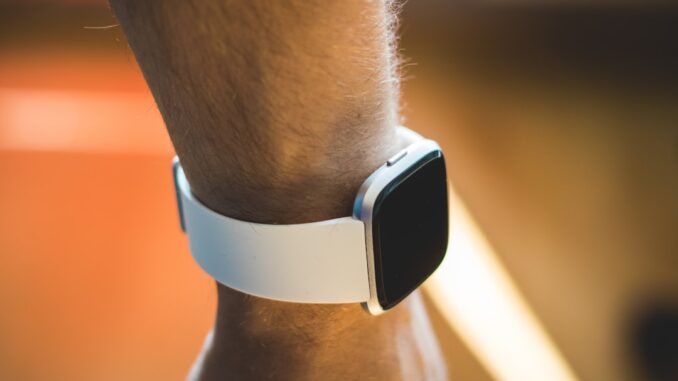
Summary
Fitbit data, combined with AI, can predict hospitalizations with 91% accuracy. This breakthrough utilizes heart rate and step count data to identify at-risk individuals, potentially revolutionizing patient care. This technology could allow for earlier intervention and personalized treatment plans.
** Main Story**
Alright, let’s talk about something pretty cool I saw coming out of Heart Rhythm 2025. It’s all about how Fitbit data, when paired with AI, can actually predict hospitalizations. I know, right? Sounds a little sci-fi, but the study claims a 91% accuracy rate. That’s… well, that’s kind of a game changer, isn’t it?
The Magic Behind the Numbers: Fitbit Data and AI
So, how’d they pull this off? Basically, researchers dove into the National Institutes of Health’s ‘All of Us’ Research Program. They looked at Fitbit data and electronic health records from over 14,000 people across the US. Specifically, they focused on heart rate and step count – seemingly simple stuff, but they fed all of that into machine learning models, you see.
The winning model? It hit that 91% accuracy mark. And it shows how powerful wearable tech, in tandem with AI, could be. It’s like a sneak peek into the future of personalized medicine, where your fitness tracker and AI work together to actually keep you healthier, it’s amazing. Plus, the study included a pretty diverse group of people, with women making up a significant 70%, so that’s a good sign that the findings could apply pretty broadly.
Real-World Impact: Patient Care Revolutionized?
Think about it: Clinicians could use this data to better assess risk. That means more proactive, personalized treatment plans. Finding those at risk early could mean preventing hospitalizations altogether. Imagine that. It’s potentially huge for managing chronic conditions too, allowing for constant monitoring and timely adjustments to care.
Fitbit: More Than Just Steps
Fitbit has become a serious tool for health research, and it’s not hard to see why. You know, the way it passively collects data gets rid of that reliance on people self-reporting, which can be…well, let’s just say ‘not always accurate.’ And because Fitbit has an open web API, researchers can access participant data constantly, allowing for long-term studies. It gives us a much better understanding of how our health changes over time. And it’s not just the data, Fitbit also keeps people engaged which really helps with long-term adherence.
Fitbit’s Evolution in Healthcare
Fitbit is stepping it up, from basic activity tracking to way more advanced health metrics. Breathing rate, heart rate variability, skin temperature, oxygen saturation, resting heart rate…the list goes on. All that data, combined with AI, gives us serious insights into how we’re doing, individually. It really opens the door for more precise monitoring and detecting potential health issues, wouldn’t you agree?
A Glimpse into the Future: Fitbit and COVID-19
And here’s a curveball: Preliminary research suggests Fitbit data might even predict the onset of COVID-19 before you even feel sick. By keeping tabs on things like breathing rate, resting heart rate, and heart rate variability, Fitbit could potentially help with early detection and isolation, which could really help slow down the spread of infectious diseases. Of course, this is still preliminary as of today, May 6, 2025. More research is needed.
What’s Next for Wearable Tech in Healthcare?
This Fitbit study? It’s a big step forward for wearable tech in healthcare. It offers the promise of more personalized, proactive, and preventative care. And that’s something everyone benefits from, both patients and clinicians. I mean, the more data we have, the better decisions we can make. I know some people are a little creeped out by all the data collection, but it’s hard to argue with the potential benefits, isn’t it? As research keeps digging into what wearable devices can really do, expect more breakthroughs in the years to come. The combination of wearable tech and AI is changing the whole healthcare scene, and maybe that’s not such a bad thing.


The study’s focus on heart rate and step count is interesting. Do you think incorporating other readily available wearable data, such as sleep patterns or even ambient temperature, could further refine the accuracy of these predictive models for hospitalization risk?
That’s a great point! Including sleep data definitely seems like a logical next step, especially considering its impact on overall health. Ambient temperature could add another layer of valuable context too. It’ll be interesting to see how these additional data points might improve the models! Thanks for sharing your thoughts.
Editor: MedTechNews.Uk
Thank you to our Sponsor Esdebe
Given the study’s 70% female participant base, were there any observations about how hormonal fluctuations or menstrual cycles might influence the accuracy of hospitalization risk predictions based on heart rate and step count?
That’s a fascinating question! The study didn’t specifically address hormonal fluctuations, but with such a significant female participant base, it’s a crucial consideration for future research. Exploring those connections could really refine the predictive models and make them even more effective for women’s health!
Editor: MedTechNews.Uk
Thank you to our Sponsor Esdebe